Institutionalizing a controlled testing mechanism (sandbox), protecting risks during the testing phase and expanding the legal corridor for venture capital are among the breakthroughs of Resolution No. 57/NQ-TW dated December 22, 2024 of the Politburo on breakthroughs in science and technology development, innovation and national digital transformation.
Based on practical development requirements, this content is being implemented by localities to reduce legal obstacles and encourage innovation.
The People's Committee of Da Nang City has just granted a trial license to the first crypto asset conversion project in Vietnam.
Transparency in financial transactions
Basal Pay - the first crypto asset conversion project in Vietnam - has been officially licensed by the People's Committee of Da Nang City for testing within the framework of the controlled testing mechanism of the financial technology sector (FinTech sandbox) in the city.
Basal Pay is designed to integrate the Travel Rule standard (a legal requirement for financial institutions such as banks, money transfer providers and payment service providers to provide detailed information about the sender and recipient when transferring electronic money or making international payments) of the Financial Action Task Force (FATF) deployed in a clear legal corridor, complying with international requirements on transaction transparency and anti-money laundering and counter-terrorism financing (AML/CFT).
Basal Pay was developed by AlphaTrue Solutions Joint Stock Company (a member of the Vietnam Blockchain and Digital Asset Association) to solve the bottleneck in foreign customers' conversion transactions. Instead of going through many intermediary layers, users can directly convert crypto assets to fiat money and vice versa in just a few seconds, at a cost about 30% lower than traditional methods.
The project is built on the blockchain platform and integrates the Travel Rule mechanism: requiring the collection and transmission of identification information of both the sender and the recipient during transactions.
Mr. Le Anh Quoc, CEO of AlphaTrue Solutions Joint Stock Company, said that designed with three layers of identification, Basal Pay has a mechanism to automatically transmit transaction data according to Travel Rule standards to receiving units and store information for 5 years, helping to increase efficiency for users and support risk monitoring management agencies.
AlphaTrue Solutions hopes that Basal Pay can become a model for how Vietnamese businesses can master technology and comply with international standards right from the testing phase.
The project's pilot phase lasts 36 months, including five phases: platform development, limited operations, scaling, evaluation, and official deployment. The entire process is supervised by the Department of Science and Technology and the Da Nang City government to ensure legal compliance and the ability to integrate blockchain with the traditional financial system.
Premises for developing safe and sustainable digital payment models
According to the General Statistics Office, in the first 7 months of 2025, Da Nang welcomed nearly 11 million overnight guests with estimated service revenue of VND 18,000 billion.
Ms. Phan Thi Ngan, General Director of OneFin Vietnam Joint Stock Company - AlphaTrue Solutions' technology partner, commented that Basal Pay will help improve the experience of international tourists in Vietnam.
The project contributes to promoting digital transformation, reducing difficulties in cross-border payments, supporting management agencies in monitoring and building a modern and sustainable financial ecosystem.
Resolution 222/2025/QH15 of the National Assembly dated June 27, 2025, effective from September 1, 2025, identifies Da Nang, along with Ho Chi Minh City, as one of two localities selected to build the Vietnam International Financial Center with specific mechanisms and policies.
The city is also encouraging controlled testing of new models such as digital assets and digital financial services to attract investment and startups.
In that context, Basal Pay is not only a technology project but also reflects the connection between local development orientation and national strategy.
Mr. Tran Huyen Dinh, Chairman of the Fintech Application Committee (Vietnam Blockchain and Digital Asset Association), and also Project Director, shared that Vietnam is currently among the countries with the most vibrant crypto-asset market in the world, ranking 5th globally in terms of crypto-asset usage with more than 17 million users.
However, most activities take place without a clear monitoring mechanism, posing the risk of money laundering, fraud and budget loss. This is the reason why the Financial Action Task Force assesses that Vietnam's crypto asset market still has a "legal gray area."
Therefore, controlled testing mechanisms are considered a necessary tool: they allow testing of new technologies while ensuring management within a closely monitored scope.
Basal Pay is expected to be a pioneering step for Vietnam to demonstrate its ability to comply with international requirements on transaction transparency and prevention of money laundering and terrorist financing.
According to Mr. Tran Huyen Dinh, international experience shows that sandboxes both help control risks and attract large-scale capital flows.
In Singapore, total fintech investment in 2024 will reach $1.3 billion, of which crypto assets will account for $267 million.
In Thailand, the average transaction value is nearly $128 million, with about 265,000 active accounts, reflecting the benefits of a supervised testing framework for the domestic market.
Basal Pay not only provides empirical data for regulators to refer to in the process of building a legal framework for crypto assets, but also reflects Vietnam's efforts in gradually implementing Recommendation No. 15 of the Financial Action Task Force on the management and identification of virtual asset service providers as well as compliance with anti-money laundering, anti-terrorist financing and international cooperation regulations.
The Financial Action Task Force's June 2025 report found that only 29% of the 138 countries assessed achieved full or basic compliance, highlighting a common global challenge.
Therefore, the Basal Pay pilot also has strategic significance for national financial security. If operated effectively, the project can help reduce the risk of illegal capital flows, creating a premise for the development of safe and sustainable digital payment models in Vietnam./.
(Vietnam+)
Source: https://www.vietnamplus.vn/du-an-chuyen-doi-tai-san-ma-hoa-dau-tien-tai-viet-nam-duoc-cap-phep-thu-nghiem-post1058211.vnp








![[Photo] Images of the State-level preliminary rehearsal of the military parade at Ba Dinh Square](https://vphoto.vietnam.vn/thumb/1200x675/vietnam/resource/IMAGE/2025/8/27/807e4479c81f408ca16b916ba381b667)
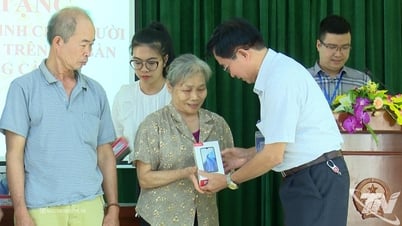





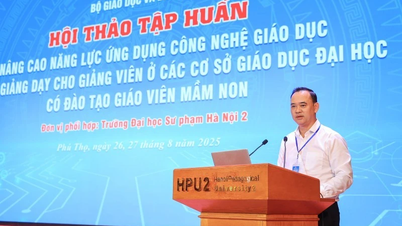

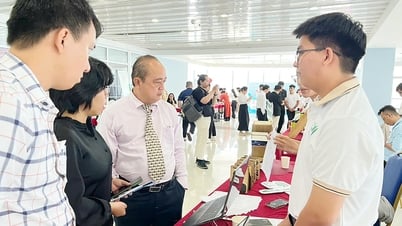
















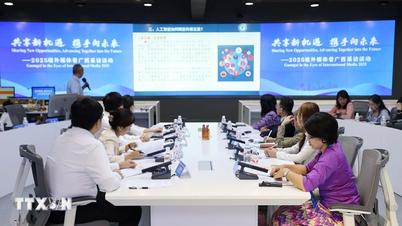

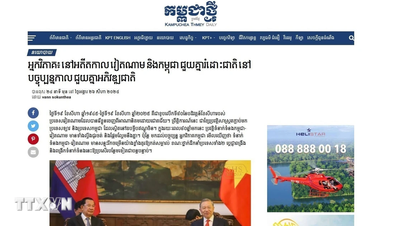
![[Photo] Parade blocks pass through Hang Khay-Trang Tien during the preliminary rehearsal](https://vphoto.vietnam.vn/thumb/1200x675/vietnam/resource/IMAGE/2025/8/27/456962fff72d40269327ac1d01426969)






































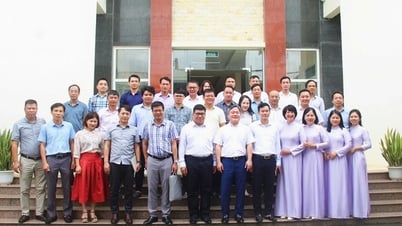





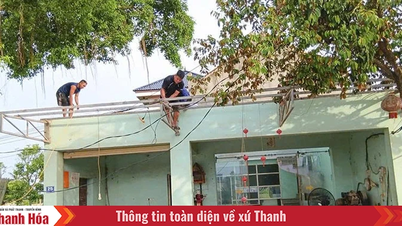


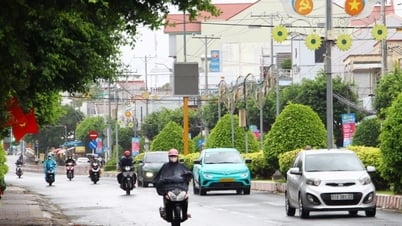















Comment (0)